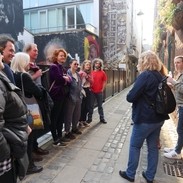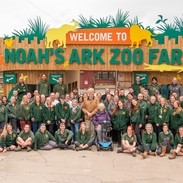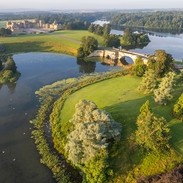Introduction to tourism in Britain
How tourism is structured in Britain
Britain’s tourism industry is a dynamic affiliation of public and private sector organisations – such as small to medium-sized enterprises (SMEs), international private businesses (for example airlines and large hotel chains), and destination organisations at local and regional levels.
Domestic tourism is the core of businesses revenue (generally at least 80%, particularly outside London), with demand peaking during the UK school holidays, especially during Easter and summer. Dealing with the demands of international visitors requires specialist knowledge, cultural understanding and investment.
We (VisitBritain/VisitEngland) are a non-departmental public body, funded by the Department for Culture, Media and Sport (DCMS) through a grant-in-aid (GIA). Scroll down to find out more about our role, or visit the Who we are and What we do pages to discover our mission, activities and teams.
VisitBritain is responsible for marketing Britain internationally. Tourism is devolved in Britain, with England, Scotland and Wales each having their own national tourist boards. In addition, London has its own promotional agency. Read on to discover how we work closely with all of these organisations.
Devolved organisations for tourism in the UK
England
VisitEngland is the national tourism organisation for England, responsible for developing England’s visitor economy. For more details, see the section on How tourism is structured in England, below.
Wales
Visit Wales is the Welsh Assembly Government's tourism team, within the Department for Heritage, having taken over the former Wales Tourist Board (WTB). It is responsible for the promotion and development of tourism in Wales.
Scotland
VisitScotland is the national tourism organisation for Scotland; it exists to support the development of the tourism industry, market Scotland as a destination and provide leadership and direction for the sector.
Northern Ireland
Tourism Northern Ireland is part of the Department of Enterprise, Trade and Investment (DETI). It is responsible for developing tourism, supporting the industry and marketing Northern Ireland as a tourist destination.
Tourism and the UK Government
The UK Government sets the overall strategy, policy and objectives for tourism. The Secretary of State at the Department for Culture, Media and Sport is Rt Hon Lisa Nandy MP, who is responsible to the UK Parliament for our activities. The Minister with responsibility for tourism is Stephanie Peacock MP.
VisitBritain is a key partner on the GREAT campaign, the UK Government’s ambitious international promotional campaign to inspire and encourage people to visit, do business, invest and study in the UK.
Government organisations that impact tourism in Britain
Department for Culture, Media and Sport
Our parent department, responsible for tourism policy and the funding of tourism promotion by us, as well as many of the key stimuli for tourism – such as museums, the creative industries and the arts.HM Treasury
Decision-making department on funding for the overseas promotion of Britain, and policies which impact international tourism – for example Air Passenger Duty, VAT and business rates.
Home Office
Impacts ease of travel to Britain through visas and border controls. Parent department for the UK Visas and Immigration agency. Also responsible for other matters affecting tourism, including licensing.Department for Transport
Impacts ease of access to Britain through aviation and shipping policies, and the UK domestic transport system (road and rail).
Foreign, Commonwealth and Development Office
Our partner in the GREAT Britain campaign with the majority of our overseas staff located in FCDO offices. Tourism is a component of public diplomacy and soft-power. Parent department of the British Council.Department for Business, Innovation and Skills
Our partner in the GREAT Britain campaign and, with the Department for Communities and Local Government, responsible for Local Enterprise Partnerships and the Regional Growth Fund. Parent department of Department for International Trade.Department for Levelling Up, Housing and Communities
Responsible for housing supply and home ownership, local authorities, local growth and public services. The government will continue to deliver Devolution Deals as proposed in the Levelling Up White Paper, providing greater freedoms and flexibilities at a local level, to enable councils to work effectively to improve the Visitor Economy in their area. In some areas, these are being delivered through Combined Authorities.Department for Business, Energy and Industrial Strategy
Responsible for business, industrial strategy, science, research and innovation, energy, clean growth and climate change.
How tourism is structured in England
In many areas of England, a single entity coordinates tourism – commonly known as a Destination Management Organisation (DMO). They come in a variety of sizes and forms, and handle everything from management to marketing. They work with a wide range of local stakeholders, including the tourism business community, local authorities, business improvement districts, transport operators, visitor information providers, landowners, cultural bodies, retail associations and community groups.
In a dynamic new initiative, we are also creating a nationwide network of Local Visitor Economy Partnerships (LVEPs) to lead, manage and market their destinations, working at a strategic level. The LVEP programme is the implementation of the de Bois independent review of DMOs, in line with the UK Government’s response.
Since 2011, in response to government policy on local economic growth, 39 Local Enterprise Partnerships (LEPs) have also been established. These are responsible for driving economic growth in their areas and working in partnership with key sectors and stakeholders.
Destination Management Organisations (DMOs)
England’s destinations are disparate and multifaceted, host to numerous stakeholders with their own specific needs. The DMOs responsible for the local visitor economy can also be varied: they might be public sector bodies such as local authorities with definitive boundaries, private companies or partnerships between the public and private sector.
Well-managed destinations are more likely to sustain investment, business growth and employment without a detrimental effect on the environment or local population. The best-managed destinations are also likely to attract inward investment across a broader range of sectors, as well as value-added jobs and new talent. This makes them great places to live, work and visit.
From promotional activity to research and insights, we help destinations grow their economies through tourism. Of the various tools, the most effective are Destination Management Plans and Tourism Growth Plans, which create an integrated and long-term approach to destination management.
Local Visitor Economy Partnerships (LVEPs)
Following the de Bois review of the structure, funding and function of DMOs, we are creating an additional portfolio of nationally supported, strategic and high-performing Local Visitor Economy Partnerships (LVEPs), which represent their destination at local and national level.
These LVEPs lead, market and manage tourism within their area, working in partnership with other destination organisations, local government and businesses. They provide strong local leadership and governance, and deliver robust destination management and planning – ensuring all key public and private sector partners are integrated into the development of the plan and its implementation.
At VisitEngland, we provide targeted support, advice and guidance; we expect there will eventually be around 40 LVEPs across England.
Learn more about Local Visitor Economy Partnerships.
Local Enterprise Partnerships (LEPs)
Local Enterprise Partnerships (LEPs) are voluntary collaborations between local authorities and businesses.
They were first formed in 2011, and there are currently 39 LEPs in operation. Their primary function is to determine economic priorities and lead economic growth and job creation within local areas. Where tourism is a recognised tool for driving growth, they work on specific projects and initiatives in partnership with DMOs.
All LEPs have developed a Strategic Economic Plan and European Investment Strategy, which sets out priorities for how their government funding will be targeted to deliver growth and jobs. This funding is used to leverage further public and private sector investment into their areas.
LEPs play an important role in the growth of the local visitor economy by encouraging and reducing barriers to inward investment, developing infrastructure projects, supporting businesses and up-skilling the local population.
Learn more about Local Enterprise Partnerships.
Government plans and initiatives to support the tourism sector
Photo by: Alamy Stock Photo
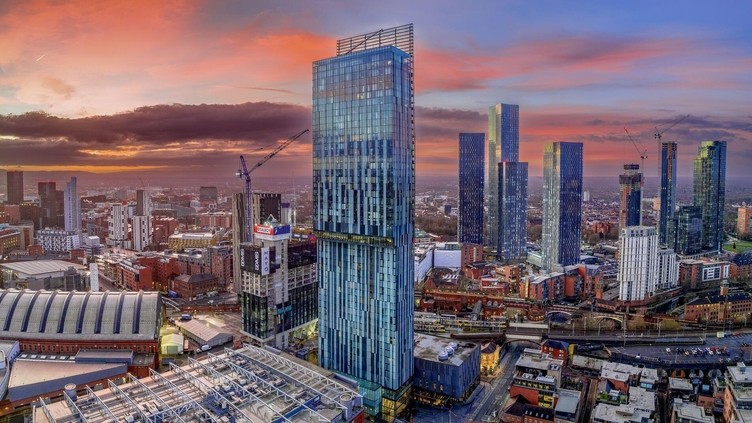
Tourism Recovery Plan: rebuilding post COVID-19
The COVID-19 pandemic had an unprecedented impact on Britain’s tourism industry: explore how we are working to rebuild the sector, recover trip volume and spend, and establish a clear policy direction for the future.
Photo by: Shutterstock / Richie Chan
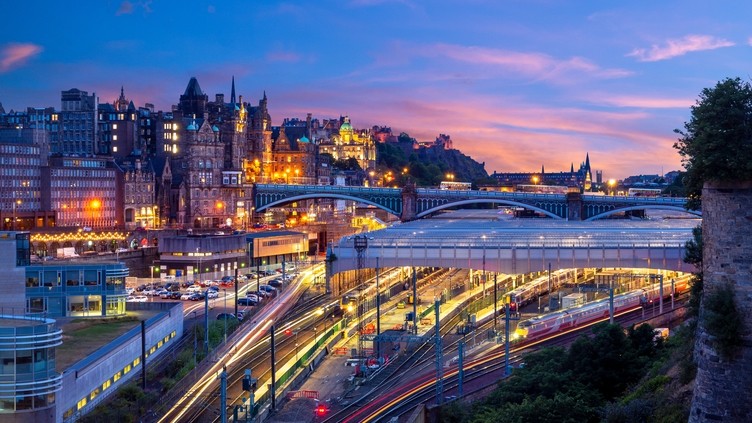
Tourism Action Plan: boosting travel and leisure in Britain
Learn how we have contributed to the UK Government’s Tourism Action Plan – which focuses on the sector landscape, industry skills, common-sense regulations, public transport and visitor experience.
Photo by: Alamy Stock Photo

Tourism Sector Deal: a “game changer for the economy”
Praised by leading industry figures, the Tourism Sector Deal aims to reinvigorate the industry by creating 10,000 more apprenticeship starts per year, investing £1 million in recruitment and increasing global market share.
Resources for students
Calling all students. You can access a wealth of information about tourism in Britain, and learn more about our mission to market Britain overseas in the Student resources section.
Photo by: VisitBritain/Nemorin
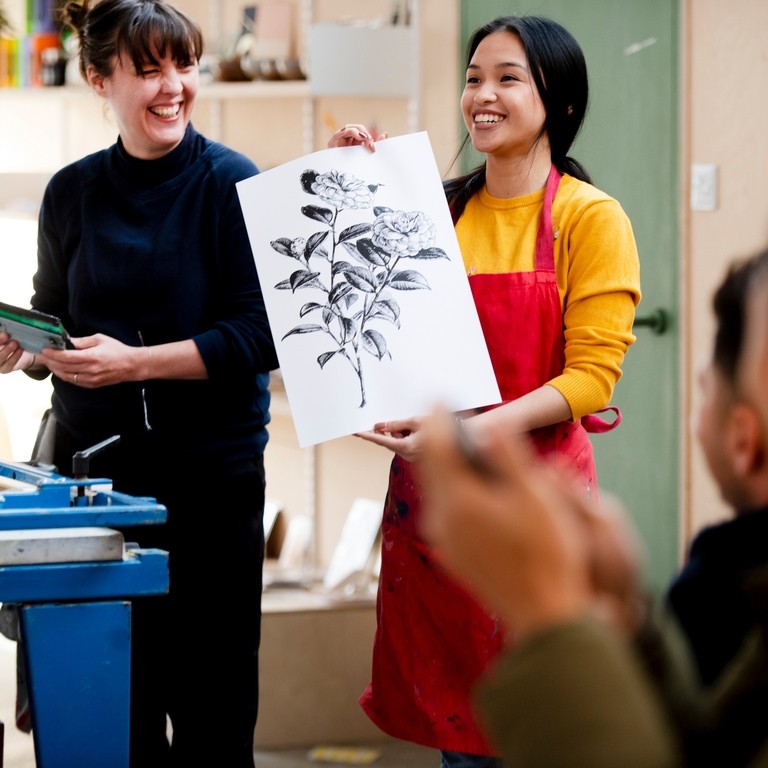
Tourism industry groups and bodies
VisitBritain chairs a number of industry-leading groups and bodies, including:
British Tourism Industry Group (BTIG)
BTIG is our (VisitBritain’s) main stakeholder group, bringing together senior government representatives, industry and tourism bodies to discuss issues relevant to the industry. By facilitating a dialogue between us at VisitBritain and the wider tourism industry, BTIG allows us to fulfil our statutory role as a trusted advisor to the Government on tourism matters. The group is chaired by our CEO, Patricia Yates.
Tourism Industry Emergency Response Group (TIER)
TIER is a small group of key tourism industry organisations and government representatives, and is facilitated by us. It develops plans for crisis scenarios, as well as managing the industry’s response to specific crises. Group members include the Association of British Travel Agents, UKinbound, UK Hospitality, Britain’s national tourist boards, British Airways and the Association of Leading Visitor Attractions.
Trip-planning resources
VisitBritain
Discover where to go in Britain with our guide to the best places to visit, things to do and getting around.
VisitEngland
Explore different regions through our destination guides, or plan weekend breaks and longer holidays.
Useful associations, clubs and groups
Association of British Travel Agents (ABTA)
Trade association for UK travel agents and tour operators in Britain.
Association of Independent Museums (AIM)
Represents the UK’s independent museums, galleries and heritage organisations.
Association of Leading Visitor Attractions (ALVA)
Represents the UK’s most popular, iconic and important tourism attractions.
The British Beer and Pub Association (BBPA)
The voice of brewers and pubs – of all sizes – across Britain.
BALPPA (British Association of Leisure Parks, Piers and Attractions)
Represents the UK’s leisure parks, piers, zoos and static attractions sector.
British Destinations
Trade association for major UK destination-based tourism interests.British Educational Travel Association (BETA)
Represents youth, student and educational travel-related producers and suppliers.
British Guild of Tourist Guides
The national membership organisation for Blue Badge guides across Britain.
British Institute of Innkeeping (BII)
Professional nationwide body for Britain’s licensed retail trade.
The Camping and Caravanning Club (CCC)
The world’s oldest and largest club for all forms of leisure camping.
The Caravan and Motorhome Club
Provides services and activities for caravan, motor caravan and trailer tent owners.
Heritage Railway Association (HRA)
Represents heritage railways and preservation groups in the UK and Ireland.
Historic Houses Association
Represents privately owned historic houses, castles and gardens.
HOSPA (Hospitality Professionals Association)
Supports hospitality specialist leaders in networking, learning and development.
Institute of Hospitality (IoH)
Supports managers working in the hospitality, leisure and tourism industries.CIMSPA (Chartered Institute for the Management of Sport and Physical Activity)
Professional development body for the UK’s sport and physical activity sector.
Institute of Tourist Guiding
The standard-setting body for Blue Badge tourist guides and the guiding sector.Institute of Travel and Tourism (ITT)
Represents individuals employed in the travel and tourism industry.Local Government Association
The voice of local government within the national arena.
National Parks UK
Representing national parks throughout the UK.
Tourism Alliance
Lobbying body for all businesses involved in the delivery of tourism.Tourism Management Institute (TMI)
Professional institute for people working within destinations.
Tourism Society
Forum for professionals working in all sectors of the tourism industry.UKHospitality
Represents the hospitality industry, identifying key issues and lobbying.
UKinbound
The trade association that represents the UK’s export tourism businesses.

